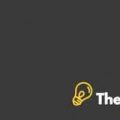Deborah Jamieson and the University College London Hospitals Case Study Solution
Improvement of Staff performance:
The staff working at the University College London Hospital was more than 6000, which involved both the medical staff such as doctors, nurses, lab technicians, midwives etc., while the non-medical staff includes cleaners, electricians, cooks etc.
The staff performance in their respective work was less efficient, which was not able to lead the hospital in the healthcare industry. As the main concern was the satisfaction of the patient on the number of services provided by the hospital. Thus, for the improvement of the staff performance a training program was introduced by Deborah. It was a two-day training problem to teach the nurses the basics, while accessing the patients.
The nurses were welcomed in the training program, and were directed about what they were to learn in this session. The nurses were provided with the training to develop better skills for the clinical examination of the patients. It involved the explanation for the assessment airway, head and neck leading in assessing the respiratory and cardiovascular sound. It was also demonstrated to the patients that how the history of the patient is taken. The history thus assisted the nurses in determining the medical condition of the patient.
Simultaneously, the nurses were also provided with additional training of management to enhance their leadership skills. This was all to polish the skills of the nurses which greatly helped the doctors in treating their patients well. As before the doctor and the patient had a meeting only at the day of surgical operation.
This improved service and confident answering of the nurses had significantly satisfied the patients. For the determination of satisfaction level of patients, a survey was conducted by 67 patients at the hospitals, out of which only 1% patients had difficulty while the other 99% of the patients were fully satisfied by the modified design of services provided and the skilled and efficient staff of the hospital and thus has also reduced the number of surgery cancellation due to the proper assessment of the patient’s medical condition.
Deborah’s Approach:
The time before Deborah joined the University College London Hospital, she had been working at the King Edward Hospital of the United Kingdom for three years as a reputed pre-operative visiting Nurse. She also had an experience of about 11 years as a Practice Director and a Physician Agent in the United States.
She was recruited at UCLH in February 2002. During her work at the University College London Hospital in the United Kingdom as an Advanced Practitioner,she observed great difference in the healthcare system of the US and the UK comparatively. She observed the differences in the role of nurses in comparison to the doctors, and that the nurses were not aware of the load of responsibilities they needed to perform. This might have been due to the reason that the doctors were not willing to see the nurses being appreciated.
In the beginning of her work, she was encouraged for her work, but not supported by all. She faced difficulties, but later on her project of redesigning of the services provided to patients, was put ahead by Louis Boden as he was the backbone of the project. With her motive to improve the health care services provided to the patients, she started meeting people working in different departments of the hospitals to know their way of thinking, and for the better analysis of the service map.
She analysed that the service map provided services to the patients in much complicated manner and the cost of the treatment was also high. The service map was a series of 56 steps which was not acceptable for Deborah so she thought to transform it. The transformation of the 56 steps service map was turned to be a two-step service. It was aimed to reduce the cost of the services, which was not suitable for each patient to afford. As everyone seeks for the best treatment, but with low cost and high profiled services.
Starting with the transformation, Deborah’s main concern was the performance of Treatment Centre, as it was responsible for all the Diagnostic and Therapy for the day surgery. It was also considered because of the reason that it was recently launched by the hospital in order to enhance the number of services, for which the patients had to visit other hospitals. She had several visits in the departments of the hospital, and checked out if there was a need of any equipment. A number of four trained nurses were also recruited in the day surgery clinic, which turned eight after three years. This reduced the unnecessary diagnostic test resulting in the decreased treatment cost.
With these changes in the hospitals, there was a need to work on the skills of the staff members, as the nurses were not performing all their responsibilities that they should perform in contrast to the nurses of the US and the UK. Deborah then intended to train the nurses and make them capable of fulfilling the efficient pre-admission responsibility as well as pre-operative assessment. This assisted doctors in determining the medical status of the patient by two-three week earlier assessment required for the surgery. The criteria of earlier assessment until the date when surgical operation is scheduled, the patient’s diagnostics were checked time to time in order to be aware if the patient was ready for the surgical operation or not.
The nurses had been seen contented with their performance at their work, as they were also able to perform multiple tasks instead of being limited to one. Many of the nurses appreciated this effort of Deborah. Hence, Deborah was successful in what she intended to do. She was satisfied by the collaborated performance of the management and the employees of the hospital,which significantly brought satisfaction to the patients.
Conclusion:
The University College London Hospital was working by the assistance of NHS Trust, which was established after the Second World War in 1948. It was working so well in providing its patients with high quality treatment and services. But after Deborah joined as an Advanced Practitioner, the whole structure of the hospital service was changed to satisfy the patients, and provide them with low cost and high quality treatment. With the collaborative efforts of the hospital management and the employees, Deborah became successful in bringing a positive change in the hospital..........
This is just a sample partical work. Please place the order on the website to get your own originally done case solution.











